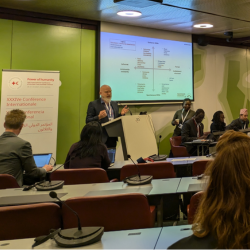-
Study
-
Quick Links
- Course Search
- Unlock Your Potential
- Still time to Apply
- Higher and Degree Apprenticeships
- Continuing Professional Development
- Book an Open Day
-
Undergraduate
- Course Search
- Application Guides
- UCAS Exhibitions
- Foundation Years
- Fees and Funding
- School & College Outreach
- Information for Parents
-
Postgraduate
- Course Search
- Application Guide
- Postgraduate Research Degrees
- Flexible Learning
- Fees and Funding
- Change Direction
- Register your Interest
-
Student Life
- Students' Union
- The Hub - Student Blog
- Accommodation
- Northumbria Sport
- Support for Students
-
Experience Northumbria
- Open Days & Events
- Virtual Tours
- Campus Tours
- Life in Newcastle
-
-
International
International
Northumbria’s global footprint touches every continent across the world, through our global partnerships across 17 institutions in 10 countries, to our 277,000 strong alumni community and 150 recruitment partners – we prepare our students for the challenges of tomorrow. Discover more about how to join Northumbria’s global family or our partnerships.
View our Global Footprint-
Quick Links
- Course Search
- Undergraduate Study
- Postgraduate Study
- Information for Parents
- London Campus
- Northumbria Pathway
- Sign up for Information
-
International Students
- Information for Students
- International Events
- Application Guide
- Entry Requirements and Education Country Agents
- Global Offices
- English Requirements
- English Language Centre
- International student support
-
International Fees and Funding
- International Undergraduate Fees
- International Undergraduate Funding
- International Masters Fees
- International Masters Funding
- International Postgraduate Research Fees
- International Postgraduate Research Funding
-
International Partners
- Agent and Representative Network
- Global Partnerships
- Global Community
-
International Mobility
- Information for Northumbria Students
- Information for Incoming Exchange Students
-
-
Business
Business
The world is changing faster than ever before. The future is there to be won by organisations who find ways to turn today's possibilities into tomorrows competitive edge. In a connected world, collaboration can be the key to success.
More on our Business Services -
Research
Research
Northumbria is a research-rich, business-focused, professional university with a global reputation for academic quality. We conduct ground-breaking research that is responsive to the science & technology, health & well being, economic and social and arts & cultural needs for the communities
Discover more about our Research -
About Us
-
About Northumbria
- Our Strategy
- Our Staff
- Place and Partnerships
- Leadership & Governance
- Academic Departments
- University Services
- History of Northumbria
- Contact us
- Online Shop
-
-
Alumni
Alumni
Northumbria University is renowned for the calibre of its business-ready graduates. Our alumni network has over 246,000 graduates based in 178 countries worldwide in a range of sectors, our alumni are making a real impact on the world.
Our Alumni - Work For Us
What will I learn on this module?
In this module, students are introduced to the structure and dynamics of discourse as linguistic interaction. Here the module will examine the linguistics and social conventions surrounding and governing text and talk. As the module develops, students will go on to explore and analyse some of the discourses that shape our society: advertising, political discourse, legal discourse, medical discourse and educational discourse. This will in turn enhance students’ employability prospects in areas such as advertising, publishing and marketing.
How will I learn on this module?
The module will be delivered through a combination of interactive lectures and seminars. Key themes and concepts will be introduced in lectures and supported by seminars that allow for group work and the analysis of spoken and written texts. All topics within the module will be supported by reference to set readings, which you will read outside of class to further develop your knowledge and understanding of the main areas under discussion.
In addition to learning during taught hours with the module tutor, you will be expected to undertake both directed and independent learning. Directed learning generally will take the form of preparation for seminars where you will be expected to contribute to group work and full class discussion. Independent learning generally will take the form of further reading and investigation, the consolidation of seminar notes, and revision/preparation for the assessment of the module.
All learning materials and seminar tasks will be posted on the eLP (e-learning portal) to facilitate full participation in the module. Additionally, you will receive formative feedback on your ideas and understanding throughout the module. The module’s final, summative assessments will also provide an opportunity for learning.
How will I be supported academically on this module?
The module aims to introduce you to the nature of discourse and some of the key methods of analysing it. Thus, lectures and seminars will develop your academic knowledge and skills, to help you attain the module learning outcomes. Your academic development will also be facilitated through engagement with the academic literature and by talking with your peers and the module tutor about your understanding of this literature (i.e. reading around the topic, and discussing and reflecting upon what you have read) as well as through sharing your thoughts about the findings of your textual analyses.
The module handbook provides details of lectures, seminars, reading lists and assessment criteria; lecture materials are made available on the eLP (see above). The module tutor will be available in lectures and seminars, as well as in ‘Feedback and consultation hours’ (i.e. ‘office hours’) and on email, to discuss any queries or concerns you have about how to excel academically on the module. Formative feedback will be on-going throughout seminar activities.
In addition, you have a designated Guidance Tutor throughout the entire duration of your programme. The academic side of the Guidance Tutor’s role includes: monitoring your ongoing academic progress; helping you to develop self-reflection skills necessary for continuous academic development; directing you to further available services which can help them with their academic skills (e.g. Library’s Skills Plus). You are advised to see your Guidance Tutor at least twice each semester to review your academic progress..
What will I be expected to read on this module?
All modules at Northumbria include a range of reading materials that students are expected to engage with. Online reading lists (provided after enrolment) give you access to your reading material for your modules. The Library works in partnership with your module tutors to ensure you have access to the material that you need.
What will I be expected to achieve?
Knowledge & Understanding:
1. Demonstrate an understanding of the nature of discourse and key ways to analyse both spoken and written language.
.
2. Show the ability to recognise a variety of discourses and to analyse spoken and written texts.
Intellectual / Professional skills & abilities:
3. Demonstrate the ability to collect and organise and present a ideas and evidence to illustrate and justify an argument and position.
4. Present ideas and arguments inspeech and writing in an academic context, with appropriate use of ICT
Personal Values Attributes (Global / Cultural awareness, Ethics, Curiosity) (PVA):
1. Demonstrate the ability to work independently as well as collaboratively with others.
How will I be assessed?
Formative assessment
1. You will discuss your ideas during seminars and will receive formative feedback from the module tutor and peers
2. You will be given written feedback on the first component of your first assignment which you will use to inform the second component of your first assignment. This is intended to help you both engage with and respond to feedback.
3. Formative assessments address MLOs in ‘Knowledge and Understanding’, ‘Intellectual/Professional skills & abilities’, and ‘Personal Values Attributes’.
Summative (graded) Assessments
1. An academic essay of 1,500 words (for which you will receive feedback)
2. An analysis of 1,500 words on a text related to the discourses of advertising, politics, medicine, education or law.
The assessment will be part of the learning process, and addresses all five MLOS.
Feedback will be provided using the Programme template and comments on the scripts.
Pre-requisite(s)
N/A
Co-requisite(s)
N/A
Module abstract
Please find details of this module in the other sections provided.
Course info
UCAS Code Q310
Credits 20
Level of Study Undergraduate
Mode of Study 3 years Full Time or 4 years with a placement (sandwich)/study abroad
Department Humanities
Location City Campus, Northumbria University
City Newcastle
Start September 2025 or September 2026
All information is accurate at the time of sharing.
Full time Courses are primarily delivered via on-campus face to face learning but could include elements of online learning. Most courses run as planned and as promoted on our website and via our marketing materials, but if there are any substantial changes (as determined by the Competition and Markets Authority) to a course or there is the potential that course may be withdrawn, we will notify all affected applicants as soon as possible with advice and guidance regarding their options. It is also important to be aware that optional modules listed on course pages may be subject to change depending on uptake numbers each year.
Contact time is subject to increase or decrease in line with possible restrictions imposed by the government or the University in the interest of maintaining the health and safety and wellbeing of students, staff, and visitors if this is deemed necessary in future.
Useful Links
Find out about our distinctive approach at
www.northumbria.ac.uk/exp
Admissions Terms and Conditions
northumbria.ac.uk/terms
Fees and Funding
northumbria.ac.uk/fees
Admissions Policy
northumbria.ac.uk/adpolicy
Admissions Complaints Policy
northumbria.ac.uk/complaints














